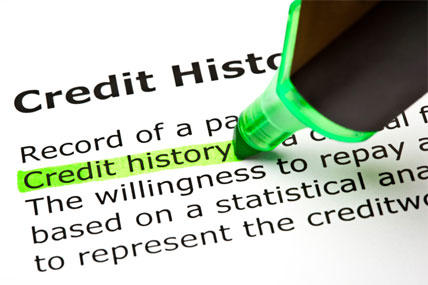Getting the best interest rate on a loan comes down to one important number: Your credit score.
What Is It?
A credit score is a three-digit number generally ranging from 300 – 850. The higher your score, the better credit risk lenders think you are. And that means you'll pay lower interest rates on loans. That number can go up and down based on the way you handle your financial commitments.
| What Helps | What Hurts | |
|---|---|---|
| 1. | Making Timely Payments The best way to improve or maintain good credit is to pay your bills on time. Payment history affects about 35% of your score. |
Opening Too Many New Accounts If you have been managing credit for only a short time, new accounts lower your average account age (how old the account is). That will have a greater effect on your score than if you don't have a lot of credit information. |
| 2. | Knowing the Score Check your credit report annually. Some consumer advocate group studies have found that up to one out of every four credit reports contains a serious error that could stop you from getting the best terms on a loan. At annualcreditreport.com, the reports are available for free once a year. |
Closing Old, Unused Credit Card Accounts to Up Your Score A card that you've held for a few years is better for your score than one you've just obtained. Just don't use them. You can slowly close them over time. |
| 3. | Developing a Credit History If you don't have a credit card, get one and use it responsibly so credit bureaus can begin to track your payment history. Simply charging $20 a month and paying it off each month over six to eight months will help establish good credit. |
Signing Up for Retailers' Incentives Your score is affected by the number of times credit card companies request your credit report. It can look like you are desperate for credit, not that you just want 10% off on your jeans. |
| 4. | Not Maxing Out Keep credit balances at 25% or below of your total credit limit. Maxing out available credit will reflect poorly on your score. |
Opening Credit Card Accounts for Better Credit Mix It probably won't raise your score. The ideal mix is between secured loans, such as home loans or car loans, and unsecured loans like credit cards. |
| 5. | Mixing It Up Lenders like to see that you can manage different types of debt, from major credit cards like Visa and MasterCard, to department store cards and installment loans, such as a car loan. |
Shopping for a Loan for Too Long A score distinguishes between shopping for a specific type of loan and a search for new credit lines, in part by the length of time over which credit inquiries from lenders take place. Compare rates, but try to pick a loan within, say, a two-week period. |
Have You Checked Your Credit Lately?
By law, you are entitled to at least one free credit report annually. This is different from your credit score. The credit-reporting agencies that offer your credit report free also offer online resources for ordering copies of your credit score — but most charge a fee for that additional information. For details, contact the agencies directly:
- Equifax 1-800-685-1111
- Experian 1-888-397-3742
- TransUnion 1-800-916-8800
Best Practices for Credit Monitoring
Knowing your credit activity is key to managing your credit and protecting yourself from fraud and ID theft. CreditCheck Monitoring by Experian® is a great way to help you easily review and monitor your credit online. CreditCheck Monitoring includes these great benefits:
- Receive email alerts of critical changes to your Experian credit file .
- Receive unlimited access to your Experian Credit Report and Score so you can make sure everything is current and accurate.
- Get a real-time look at your PLUS Score and understand how lenders may view your credit.
- Detect potential errors that may appear within your credit report, as well as unauthorized activity that may be a sign of fraud.












